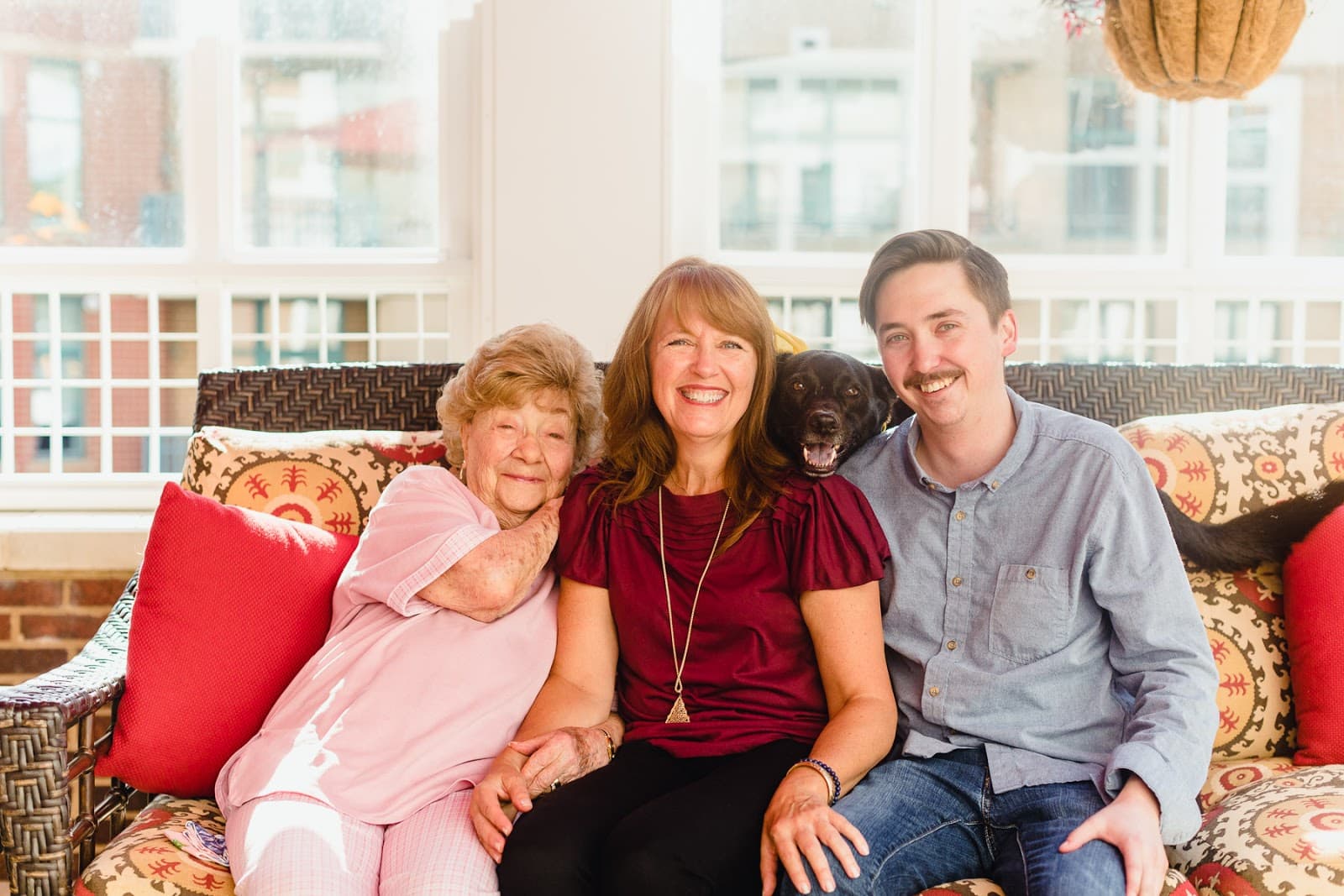Being the one in charge of making life-changing decisions for your senior loved one can be difficult. Often, family members have a hard time deciding on the right time for transitioning their parents, spouse, or other senior loved ones from assisted living to memory care. It can be challenging because there is no set time that is the right time.
Some seniors struggling with memory loss may remain in the early stages of Alzheimer’s for years, while other seniors with Alzheimer’s may progress more quickly. Paying attention to your senior loved one’s behavior may help you determine if their needs are changing and if they need more specialized care to manage their memory loss disease.
While it can be confusing for a senior, and they may feel emotional over changes, there are ways to make their transition easier. When the time comes for transitioning to memory care from assisted living, it is essential to support your loved one and visit them often. Knowing they are not alone will help them feel safe, less lonely, and more comfortable.
Signs that specialized memory care may be needed
While trying to pinpoint the exact time to transition your loved one over from assisted living to more specialized memory care can be confusing, there are signs to help you decide. Understanding these signs is the first step in getting your senior loved one the best and most appropriate type of support.
If your senior once enjoyed life enrichment activities at their assisted living community yet no longer seems interested, you may want to question this change. When seniors begin to withdraw from things they used to love, it is often a sign that something is going on, such as advancement in Alzheimer’s or dementia.
When you visit your senior loved one, pay attention to their appearance and hygiene. Often, increased memory impairment can make it difficult for a senior to take care of themselves and complete daily tasks alone. They may forget to bathe, change their clothes, or brush their teeth and hair.
Additional Signs
- Increased forgetfulness
- Periods of confusion
- Getting lost
- Depression
- Behavioral changes (anger, aggression)
- Language problems
- Repetitiveness
Making it seamless when transitioning to memory care
When you choose an assisted living community, it can be beneficial to pick one connected to a memory care community. By doing this, your senior loved one won’t feel as if they’re moving to an unfamiliar location. While your senior’s home will change, they may still be able to see the same rehabilitation therapist, doctor, nurses, and staff.
Even if the memory care community you choose is separate from the assisted living community your loved one was living in, there are other ways to make a smooth transition and ensure continued care.
When the time comes to move, don’t ask much of your senior. If you ask them too many questions about the move and what they want to keep or leave behind, it may overwhelm them. It is also in their best interest if they are unaware of the move until their moving day is near. For instance, telling your senior that they will be moving in a couple of months will give them too long to worry about it. It may be better to share their moving date the week of the move.
It is also a good idea to prepare yourself for complaints, mood swings, and bad days. With a new move comes new fears and anxieties. It can be upsetting but know that you are doing what is best for them. In time, your senior will feel more comfortable and happy in their new home.
Different levels of memory care
Two levels of memory care are offered at The Kensington Reston. Since Alzheimer’s and Dementia affect individuals differently, having two neighborhoods allows for specialized care based on changing needs.
Early stages of Alzheimer’s
Connections neighborhood is perfect for seniors in the early to middle stages of memory disease. Seniors living here are still somewhat independent, so they are motivated to engage in activities and take advantage of dining services.
While independent, seniors in the early stages of Alzheimer’s are still susceptible to fear, anxiety, forgetfulness, and frustration. This is why Connections maintains a safe, secure, cozy, and loving environment.
Advanced stages of Alzheimer’s
In the middle to later stages of Alzheimer’s and dementia, seniors would do best in the Haven neighborhood. Here, more support is given to seniors, as they require assistance with most tasks. Many seniors in this neighborhood have reached a point of memory loss that makes it difficult for them to recognize their own friends and family members.
The environment here is just as peaceful as Connections neighborhood, with soothing sounds and smells. Its main difference is it provides additional support that allows seniors to age in place.
Enhanced memory care at The Kensington Reston
At The Kensington Reston, We Promise to love and care for your senior in the same way that we would our own family. We understand that transitioning to memory care can be scary for both you and your senior loved one.
It is common to fear the unknown, which is why we take pleasure in answering questions about our memory care community and memory care neighborhoods. Understanding your senior’s new home and what type of services and care they will receive can help ease your mind.
While it can be a difficult decision to make, we are confident that you would be happy with our community, staff, and services if you scheduled a tour of our memory care community. We strive to ease your mind and provide the utmost care to our residents.
Feel free to contact us when you are ready to discuss or see our state-of-the-art and comfortable memory care communities.



